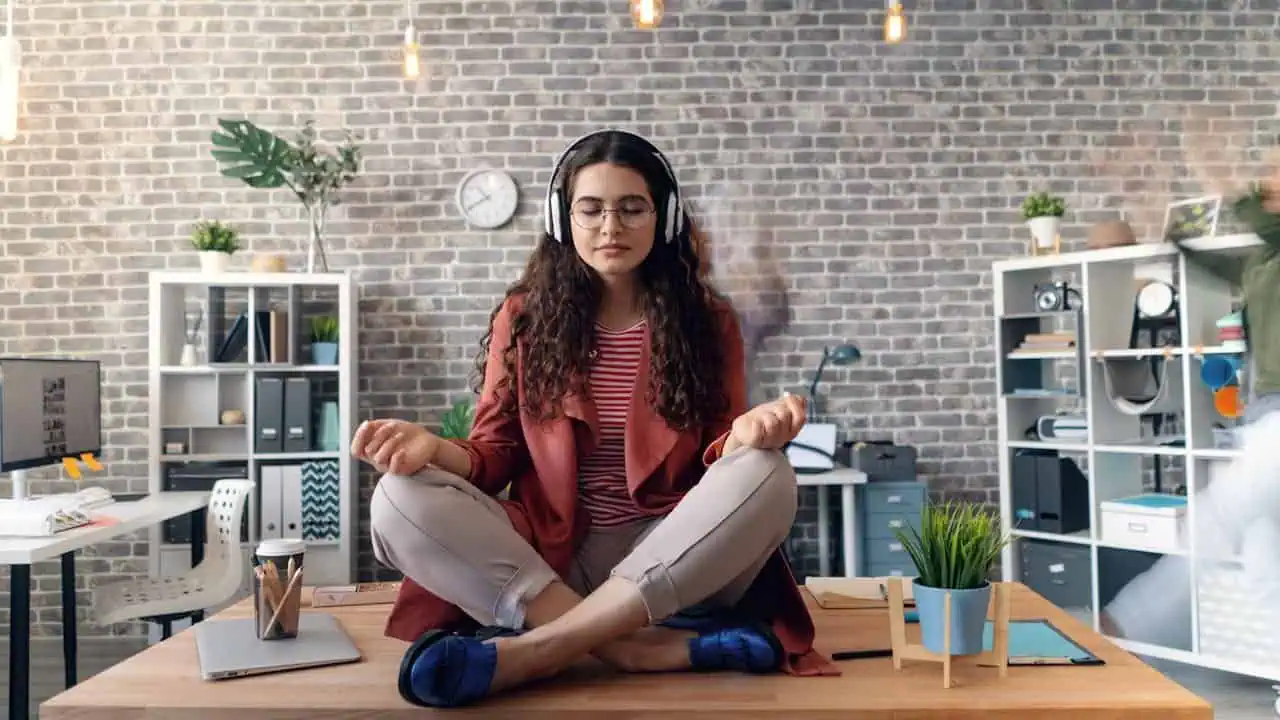There’s no denying that being stuck in an office environment day in and day out isn’t exactly conducive to optimum health. Whether it’s hours tethered to a desk or constantly straining your eyes to read a computer screen, not taking care of your health whilst in the office can have hugely detrimental effects over time. Let’s look into some easy tips for looking after your health and wellbeing in the office to avoid common pains and health conditions down the line.
Tips for looking after your health and wellbeing
By just making a few small changes to how you approach your life in the office, you can easily avoid regular pain and strains. Put your health at the forefront by following our simple tips below:
1. Protect your body in the long run by focusing on your posture
A key factor in looking after your health and wellbeing in the office of course involves your posture. Your posture, when sitting in an office chair, can have huge effects on your overall health. Make sure to maintain a straight and upright posture, avoiding slumping over your laptop at all costs.
Prolonged bad posture can lead to spine and back problems in the long term, and regular daily pain. You may also want to consider investing in ergonomic seating, ensuring the size of your desk is correct for your height and carrying out a risk assessment of your workplace to ensure the protection of your back.
2. Promote good office wellbeing by having well-needed break from screens
Prolonged screen time can cause serious strain and damage to the eyes, so it’s important to make sure you take a break from the screen. Take a short break away from your computer at least every hour and practice using the 20-20-20 screen rule. Regular breaks are something that all employers should promote for good health and wellbeing in the office. It is also important to make sure that the office has proper lighting conducive to healthy screen usage so that you aren’t straining unnecessarily.
If you find yourself suffering from headaches when using screens for too long or have difficulty reading in dim lighting, you might want to take an eye test. These are just some telltale signs that you need reading glasses and straining to read your computer screen will continue to make your eyesight worse if you don’t seek eye care help. In some cases, procedures like LASIK and laser may be recommended to correct vision issues and reduce dependency on glasses, though the LASIK
laser cost can vary depending on the technology and clinic.
3. No matter where your office is, never neglect your mental health
While it’s important to consider the physical effects of being in the office, it is equally as important to think about how it may be affecting your mental health. If busy and stressful days at the office mount up, this can lead to more prolonged conditions of stress, anxiety and depression. In order to limit stress levels in the office, make sure to leave your work at work. You can do this by not answering work emails or calls after a certain time, and filling your time outside of the office with hobbies and activities you enjoy.
Stress can be a big part of working life, whether you work in a corporate office or if you work remotely. Prioritising mental health and office wellbeing is an important factor for everyone and especially for those who are busy running their own home-based business. While working from home, business owners and employees should try to relieve their stress by remembering to take regular breaks away from their desks.
On lunch break always try to get outside and in the fresh air too as this will help to clear your mind and wind down from any stress from the day. Every office worker is different so while some may want a relaxing break, others might want a social one, a productive one, or even a career-building one. No matter how you choose to spend your breaks at work, making sure that you at least have your breaks and not skip them is key to helping boost your mental health and wellbeing in the office.
4. The key to looking after your wellbeing in the office: rethinking your eating habits
It is also important to make sure you’re eating as healthy as possible, especially in a sedentary office workspace. While it may be tempting to keep some comforting sweet treats in your drawers this will contribute nothing healthy to your overall diet. Instead, for better office wellbeing and health, opt for healthier snacks that will give you a boost of energy. Nuts and fruits are great office snacks to have during the day and a great alternative to unhealthy chocolate and sweets.
Make sure that a heavy workload doesn’t have you skipping lunch either. It’s important to prioritise your meals to ensure a healthy metabolism and so you have enough energy to complete work for the rest of the day. One bad habit that a lot of workers also get stuck into which can impact their office wellbeing is eating their lunch at their desks. Eating lunch at your desk is bad for your health as you don’t get to stretch your legs, rest your eyes from screens, or properly ‘switch off’ for your lunch hour. Ensure that you get away from your desk so that you can effectively destress before coming back to focus on your work later.

